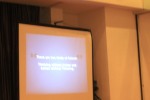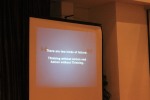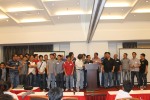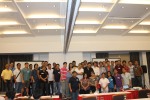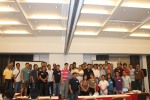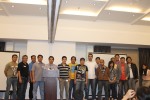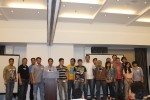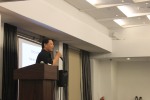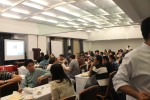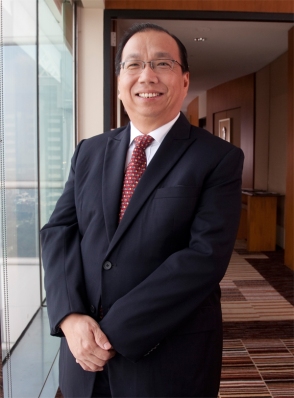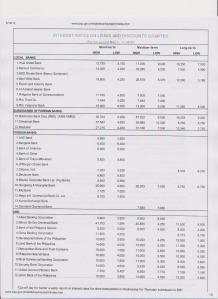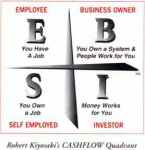
Tax Avoidance, in my opinion is a product of the unrecognized loopholes that are yet to be addressed in our Constitution, because contrary to Tax Evasion, these are legal tax evasive techniques. Though I still recommend just paying the right taxes, for reference sake, here are some of the known techniques to “AVOID” taxes.
source:Wikipedia
Tax avoidance is the legal utilization of the tax regime to one’s own advantage, to reduce the amount of tax that is payable by means that are within the law. The term tax mitigation is not however a synonym for tax avoidance. Its original use was by tax advisors as an alternative to the pejorative term tax avoidance. The term has also been used in the tax regulations of some jurisdictions to distinguish tax avoidance foreseen by the legislators from tax avoidance which exploits loopholes in the law. The United States Supreme Court has stated that “The legal right of an individual to decrease the amount of what would otherwise be his taxes or altogether avoid them, by means which the law permits, cannot be doubted.”
Tax evasion, on the other hand, is the general term for efforts by individuals, corporations, trusts and other entities to evade taxes by illegal means. Both tax avoidance and evasion can be viewed as forms of tax noncompliance, as they describe a range of activities that are unfavorable to a state’s tax system.
The Methods
Country of residence
One way a company may chose to avoid taxes is by establishing their company or subsidiaries in an Individuals may also avoid tax by moving their tax residence to a tax haven, such as Monaco, or by becoming a perpetual traveler. However some countries, such as the U.S., tax their citizens, permanent residents, and companies on all their worldwide income. In these cases, taxation cannot be avoided by simply transferring assets or moving abroad.
Double taxation
Most countries impose taxes on income earned or gains realized within that country regardless of the country of residence of the person or firm. Most countries have entered into bilateraldouble taxation treaties with many other countries to avoid taxing nonresidents twice—once where the income is earned and again in the country of residence (and perhaps, for US citizens, taxed yet again in the country of citizenship)—however, there are relatively few double-taxation treaties with countries regarded as tax havens
Legal entities
Without changing country of residence (or, if a U.S. citizen, giving up one’s citizenship), personal taxation may be legally avoided by the creation of a separate legal entity to which one’s property is donated. The separate legal entity is often a company, trust, or foundation. These may also be located offshore, such as in the case of many private foundations. Assets are transferred to the new company or trust so that gains may be realized, or income earned, within this legal entity rather than earned by the original owner. If assets are later transferred back to an individual, then capital gains taxes would apply on all profits. Also income tax would still be due on any salary or dividend drawn from the legal entity.
For a settlor (creator of a trust) to avoid tax there may be restrictions on the type, purpose and beneficiaries of the trust. For example, the settlor of the trust may not be allowed to be atrustee or even a beneficiary and may thus lose control of the assets transferred and/or may be unable to benefit from them.
Legal vagueness
Tax results depend on definitions of legal terms which are usually vague. For example, vagueness of the distinction between “business expenses” and “personal expenses” is of much concern for taxpayers and tax authorities. More generally, any term of tax law, has a vague penumbra, and is a potential source of tax avoidance.
Tax shelters
Tax shelters are investments that allow, and purport to allow, a reduction in one’s income tax liability. Although things such as home ownership, pension plans, and Individual Retirement Accounts (IRAs) can be broadly considered “tax shelters”, insofar as funds in them are not taxed, provided that they are held within the Individual Retirement Account for the required amount of time, the term “tax shelter” was originally used to describe primarily certain investments made in the form of limited partnerships, some of which were deemed by the U.S. Internal Revenue Service to be abusive.
The Internal Revenue Service and the United States Department of Justice have recently teamed up to crack down on abusive tax shelters. In 2003 the Senate’s Permanent Subcommittee on Investigations held hearings about tax shelters which are entitled U.S. TAX SHELTER INDUSTRY: THE ROLE OF ACCOUNTANTS, LAWYERS, AND FINANCIAL PROFESSIONALS. Many of these tax shelters were designed and provided by accountants at the large American accounting firms.
Examples of U.S. tax shelters include: Foreign Leveraged Investment Program (FLIP) and Offshore Portfolio Investment Strategy (OPIS). Both were devised by partners at the accounting firm, KPMG. These tax shelters were also known as “basis shifts” or “defective redemptions.”
Prior to 1987, passive investors in certain limited partnerships (such as oil exploration or real estate investment ventures) were allowed to use the passive losses (if any) of the partnership (i.e., losses generated by partnership operations in which the investor took no material active part) to offset the investors’ income, lowering the amount of income tax that otherwise would be owed by the investor. These partnerships could be structured so that an investor in a high tax bracket could obtain a net economic benefit from partnership-generated passive losses.
In the Tax Reform Act of 1986 the U.S. Congress introduced the limitation (under 26 U.S.C. § 469) on the deduction of passive losses and the use of passive activity tax credits. The 1986 Act also changed the “at risk” loss rules of 26 U.S.C. § 465. Coupled with the hobby loss rules (26 U.S.C. § 183), the changes greatly reduced tax avoidance by taxpayers engaged in activities only to generate deductible losses.
Public Opinion
Tax avoidance may be considered to be the dodging of one’s duties to society, or alternatively the right of every citizen to structure one’s affairs in a manner allowed by law, to pay no more tax than what is required. Attitudes vary from approval through neutrality to outright hostility. Attitudes may vary depending on the steps taken in the avoidance scheme, or the perceived unfairness of the tax being avoided.
In the judiciary, different judges have taken different attitudes. As a generalisation, for example, judges in the United Kingdom before the 1970s regarded tax avoidance with neutrality; but nowadays they may regard aggressive tax avoidance with increasing hostility.
Avoidance also reduces government revenue and brings the tax system into disrepute, so governments need to prevent tax avoidance or keep it within limits. The obvious way to do this is to frame tax rules so that there is no scope for avoidance. In practice this has not proved achievable and has led to an ongoing battle between governments amending legislation and tax advisors’ finding new scope for tax avoidance in the amended rules.
To allow prompter response to tax avoidance schemes, the US Tax Disclosure Regulations (2003) require prompter and fuller disclosure than previously required, a tactic which was applied in the UK in 2004.
Some countries such as Canada, Australia and New Zealand have introduced a statutory General Anti-Avoidance Rule (GAAR). Canada also uses Foreign Accrual Property Income rules to obviate certain types of tax avoidance. In the United Kingdom, there is no GAAR, but many provisions of the tax legislation (known as “anti-avoidance” provisions) apply to prevent tax avoidance where the main object (or purpose), or one of the main objects (or purposes), of a transaction is to enable tax advantages to be obtained.
In the United States, the Internal Revenue Service distinguishes some schemes as “abusive” and therefore illegal.













